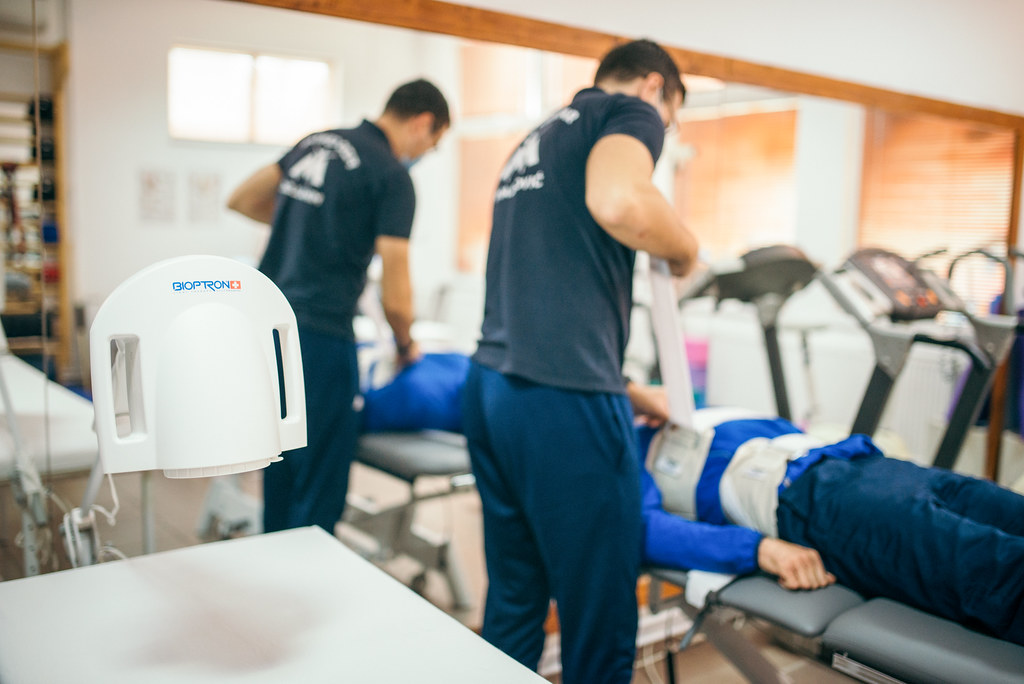Pediatric occupational therapy (OT) is a specialized branch of healthcare designed to support children in developing the skills they need for everyday activities. From tying shoelaces to improving social interactions, pediatric OT plays a crucial role in helping children achieve their full potential. In this article, we will delve into the various aspects of pediatric occupational therapy, its benefits, and how it can positively impact children’s lives.
What is Pediatric Occupational Therapy?
Pediatric occupational therapy focuses on helping children gain independence and improve their ability to perform daily activities. Occupational therapists work with children who have physical, sensory, or cognitive challenges to enhance their development and quality of life. The therapy is tailored to meet the unique needs of each child, addressing specific issues that may hinder their ability to perform tasks effectively.
The Role of Pediatric Occupational Therapists
Pediatric occupational therapists are trained professionals who assess and treat children with various developmental delays and disabilities. They work in various settings, including hospitals, schools, clinics, and private practices. Their primary goal is to help children achieve their developmental milestones and improve their functional abilities.
Assessment and Evaluation
The first step in pediatric OT is a thorough assessment and evaluation. Occupational therapists use various standardized tests and observational techniques to identify a child’s strengths and areas of need pediatric occupation therapy. This assessment helps create a personalized treatment plan that targets specific goals.
Individualized Treatment Plans
Each child receives a customized treatment plan based on their unique needs and challenges. These plans may include activities and exercises designed to improve fine motor skills, gross motor skills, sensory processing, and cognitive abilities. The therapist collaborates with parents, teachers, and other professionals to ensure a comprehensive approach to the child’s development.
Key Areas of Focus in Pediatric Occupational Therapy
Pediatric occupational therapy addresses several key areas critical to a child’s development. These areas include:
Fine Motor Skills
Fine motor skills involve the coordination of small muscles in the hands and fingers. Activities such as writing, buttoning a shirt, and using utensils require well-developed fine motor skills. Occupational therapists use various exercises and activities to enhance these skills, helping children gain greater control and precision in their movements.
Gross Motor Skills
Gross motor skills involve the coordination of larger muscle groups responsible for activities like running, jumping, and climbing. Children with developmental delays may struggle with balance, coordination, and overall physical strength. Occupational therapists design activities that promote physical fitness and coordination, helping children improve their gross motor skills.
Sensory Processing
Sensory processing refers to how the brain interprets and responds to sensory information from the environment. Some children may have difficulty processing sensory inputs, leading to challenges in daily activities. Occupational therapists use sensory integration techniques to help children regulate their responses to sensory stimuli, improving their ability to focus and engage in various tasks.
Cognitive Skills
Cognitive skills encompass thinking, learning, and problem-solving abilities. Children with cognitive challenges may struggle with attention, memory, and executive functioning. Occupational therapists employ strategies and activities to enhance cognitive skills, promoting better academic performance and daily functioning.
Social Skills
Social skills are essential for building relationships and interacting with others. Children with developmental delays may have difficulty understanding social cues and engaging in appropriate social behaviors. Occupational therapists use role-playing, social stories, and group activities to teach social skills, fostering better communication and interaction with peers.
Benefits of Pediatric Occupational Therapy
Pediatric occupational therapy offers numerous benefits that can significantly improve a child’s quality of life. Some of the key benefits include:
Enhanced Independence
By developing essential skills, children gain greater independence in daily activities. This independence boosts their confidence and self-esteem, enabling them to participate more fully in school, home, and community life.
Improved Academic Performance
Children who receive occupational therapy often show improvements in their academic performance. Enhanced fine motor skills, cognitive abilities, and attention span contribute to better handwriting, reading, and overall learning capabilities.
Better Social Interactions
Improved social skills lead to better interactions with peers and adults. Children learn to communicate effectively, understand social norms, and build meaningful relationships, reducing feelings of isolation and increasing their sense of belonging.
Increased Physical Abilities
Pediatric occupational therapy promotes physical fitness and coordination. Children become more adept at physical activities, which enhances their overall health and well-being.
Enhanced Sensory Processing
Children with sensory processing challenges learn to regulate their responses to sensory stimuli. This regulation helps them focus better, reduces anxiety, and improves their ability to engage in various activities.
Collaborating with Parents and Caregivers
A critical aspect of pediatric occupational therapy is collaboration with parents and caregivers. Occupational therapists work closely with families to ensure that therapeutic activities are integrated into the child’s daily routine. They provide guidance and support, helping parents understand their child’s needs and how to facilitate their development at home.
When to Seek Pediatric Occupational Therapy
Early intervention is crucial for addressing developmental delays and challenges. Parents and caregivers should consider seeking pediatric occupational therapy if they notice any of the following signs in their child:
- Difficulty with fine or gross motor skills
- Challenges with sensory processing
- Delayed developmental milestones
- Struggles with social interactions
- Problems with attention and cognitive skills
Early intervention can make a significant difference in a child’s development, helping them achieve their full potential.
Conclusion
Pediatric occupational therapy is a vital service that supports children in developing the skills they need for daily life. By focusing on fine motor skills, gross motor skills, sensory processing, cognitive abilities, and social skills, occupational therapists help children overcome challenges and achieve greater independence. The collaborative approach with parents and caregivers ensures that therapeutic activities are integrated into the child’s routine, fostering continuous development. If you notice any developmental challenges in your child, seeking pediatric occupational therapy can provide the necessary support and intervention to help them thrive.

